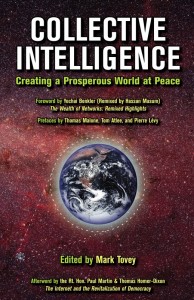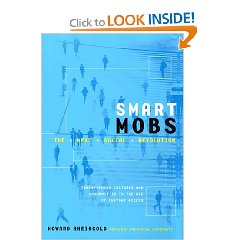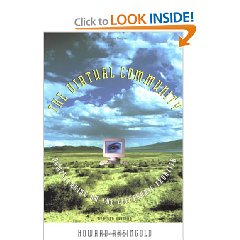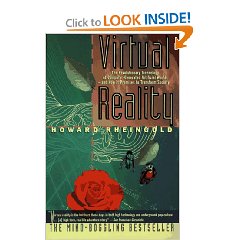
Howard Rheingold may well have been the first pioneer to fall down into the chasm of cyberspace and the write about it. As Editor of the Whole Earth Review, following in the footsteps of founder Stewart Brand, he has consistently been on the bleeding edge of both righteous living for a Whole Earth, and the bleeding edge of technology and the human mind. Below are links to his books, the first of which, Tools for Thinking, catalyzed deep soul-searching within the Central Intelligence Agency (CIA) which at the time (1986) had nothing to offer such as Howard envisioned. He was, with John Perry Barlow, one of the two speakers at OSS '92 who challenged virtually every aspect of the secret intelligence paradigm.
A slice of life in my virtual community
Continue reading “Who's Who in Collective Intelligence: Howard Rheingold”









